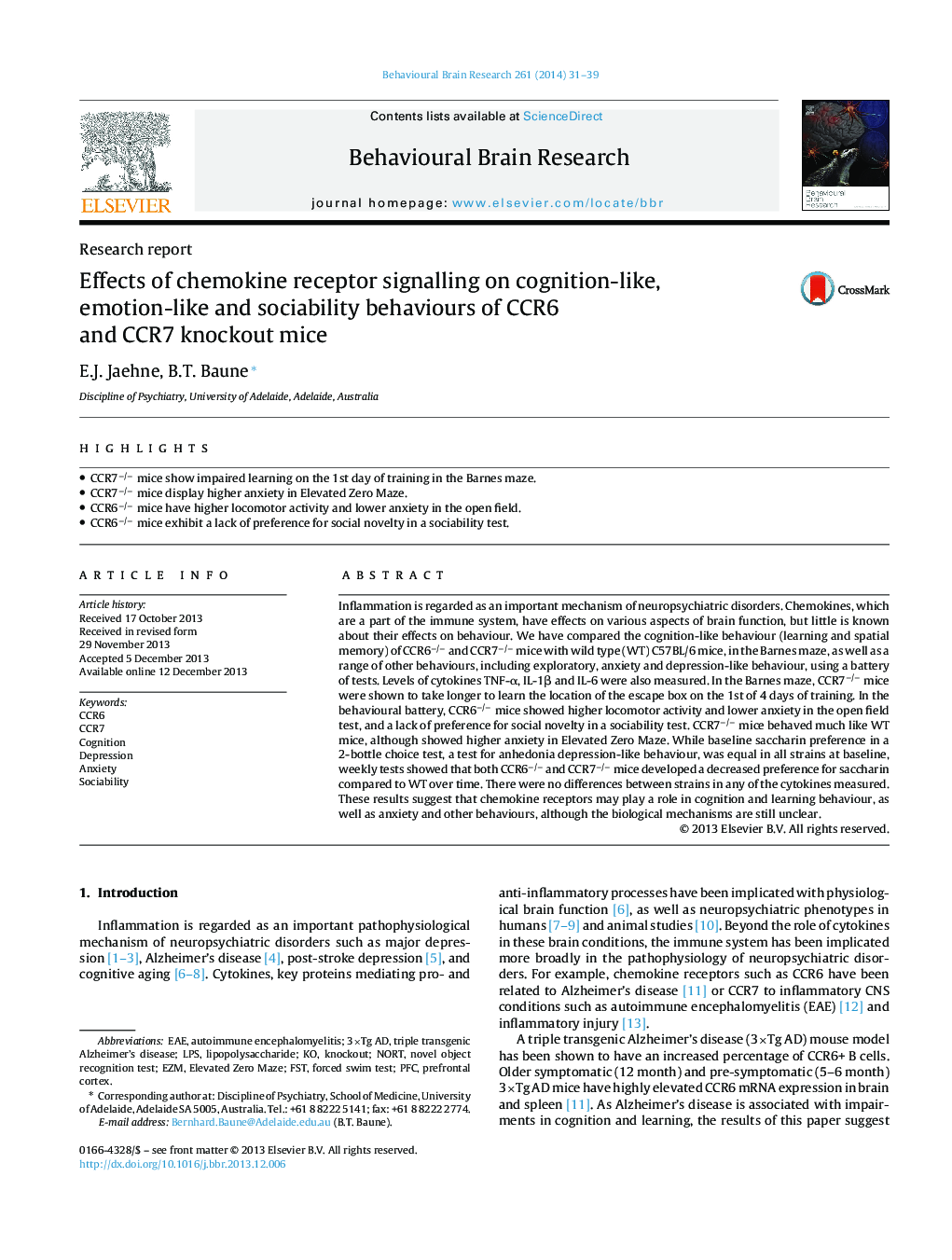| کد مقاله | کد نشریه | سال انتشار | مقاله انگلیسی | نسخه تمام متن |
|---|---|---|---|---|
| 6258331 | 1612971 | 2014 | 9 صفحه PDF | دانلود رایگان |

- CCR7â/â mice show impaired learning on the 1st day of training in the Barnes maze.
- CCR7â/â mice display higher anxiety in Elevated Zero Maze.
- CCR6â/â mice have higher locomotor activity and lower anxiety in the open field.
- CCR6â/â mice exhibit a lack of preference for social novelty in a sociability test.
Inflammation is regarded as an important mechanism of neuropsychiatric disorders. Chemokines, which are a part of the immune system, have effects on various aspects of brain function, but little is known about their effects on behaviour. We have compared the cognition-like behaviour (learning and spatial memory) of CCR6â/â and CCR7â/â mice with wild type (WT) C57BL/6 mice, in the Barnes maze, as well as a range of other behaviours, including exploratory, anxiety and depression-like behaviour, using a battery of tests. Levels of cytokines TNF-α, IL-1β and IL-6 were also measured. In the Barnes maze, CCR7â/â mice were shown to take longer to learn the location of the escape box on the 1st of 4 days of training. In the behavioural battery, CCR6â/â mice showed higher locomotor activity and lower anxiety in the open field test, and a lack of preference for social novelty in a sociability test. CCR7â/â mice behaved much like WT mice, although showed higher anxiety in Elevated Zero Maze. While baseline saccharin preference in a 2-bottle choice test, a test for anhedonia depression-like behaviour, was equal in all strains at baseline, weekly tests showed that both CCR6â/â and CCR7â/â mice developed a decreased preference for saccharin compared to WT over time. There were no differences between strains in any of the cytokines measured. These results suggest that chemokine receptors may play a role in cognition and learning behaviour, as well as anxiety and other behaviours, although the biological mechanisms are still unclear.
Journal: Behavioural Brain Research - Volume 261, 15 March 2014, Pages 31-39